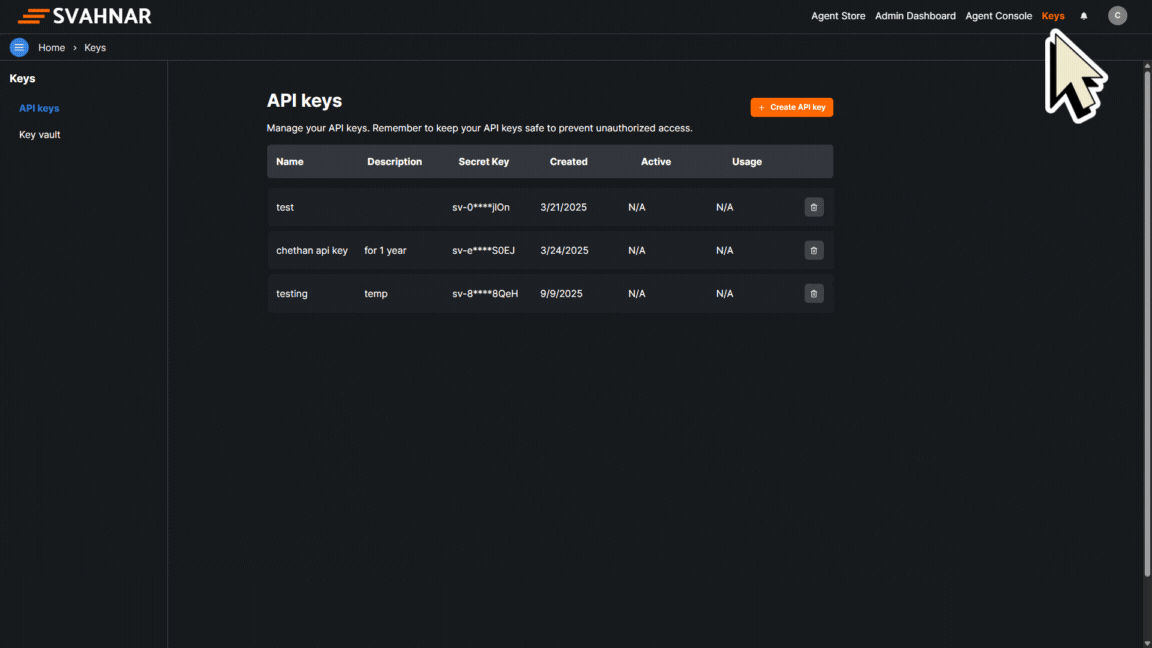Quickstart
Set up your SVAHNAR environment and create your first agent in minutes using the SVAHNAR SDK. This guide will walk you through the steps to get started quickly.
Configure your development environment
To start using the SVAHNAR SDK, you need to set up your development environment. This includes installing the necessary dependencies and getting your API key.
Before you start with the development, you need to create and export an API key. This key will be used to authenticate your requests to the SVAHNAR API.
Get an API Key
Create a new API Key in the SVAHNAR Platform. Navigate to the API keys section in your account. Create a new API key and copy it.

Export the API key
Export the API key as an environment variable
- macOS / Linux
- Windows
export SVAHNAR_API_KEY="your_api_key_here"
setx SVAHNAR_API_KEY "your_api_key_here"
Install the SVAHNAR SDK
Install the SVAHNAR SDK using pip. Open your terminal and run the following command:
- Python
pip install svahnar
Create your first agent
To verify that the SVAHNAR SDK is installed correctly, create a file test.py and add the following code:
from svahnar import Svahnar
from pathlib import Path
client = Svahnar()
response = client.agents.create(
name="Web Search Agent",
description="This Agent is used to search for the information on web or internet and provide the result",
deploy_to="Organization",
yaml_content=Path("agent.yaml")
)
print(response)
Execute the code with python test.py. In a few moments, you should see the output of your API request.
Make sure to replace agent.yaml with the path to your agent configuration file.
You can find the example agent configuration YAML below
create_vertical_agent_network:
agent-1:
agent_name: "Web_search"
LLM_config:
params:
model: "gpt-5"
max_tokens: 1000
request_timeout: 600
tools:
tool_assigned:
- name: "Tavily"
config:
max_results: 5
agent_function:
- "Your function is to search the web or internet for information"
incoming_edge:
- "Start"
outgoing_edge: []